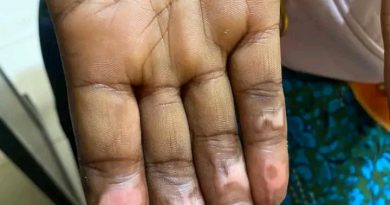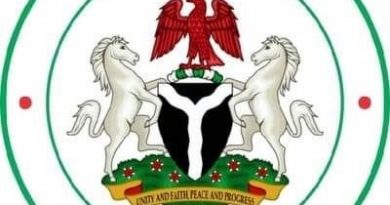Between Obi and Kwankwaso, Who’s the “Local Champion” Now? By Farooq A. Kperogi
Between Obi and Kwankwaso, Who’s the “Local Champion” Now? By Farooq A. Kperogi
In the months that preceded the February 2023 presidential election, supporters of Rabiu Musa Kwankwaso both badgered me to recognize Kwankwaso’s matchless political might and affronted me for ranking Peter Obi above him. My unrelenting assertions, which have turned out to be accurate, that one of Bola Tinubu, Atiku Abubakar, or Peter Obi would emerge president this year riled them to no end.
One day in 2022, a particularly persistent, monomaniacal Kwankwaso groupie asked me in a comment on my Facebook page why I consistently ignored Kwankwaso in my analyses of likely successors to Muhammadu Buhari. I responded that it was because Kwankwaso was only a “local champion” of Kano politics who had no political traction outside the state.
My lighthearted, unpremeditated comment was screenshot and shared widely within Kwankwaso devotional circles on social media. Kwankwaso’s devotees were enraged because they misconstrued my description of their object of political worship as an insult.
But it isn’t. Although many Nigerian English speakers think “local” is a term of disesteem, it isn’t by any stretch of conventional semantic imagination. It’s a value-neutral term that simply means nearby; not far away in relative terms; limited to a town, city, state, region, etc. rather than a larger area.
READ ALSO: Prof. Aishatu Gobir’s Appointment Plus, Honour to Ilorin, Kwara — IEYDA
As I pointed out in an April 20, 2014, Daily Trust grammar column titled “12 Popular Misusages in Nigerian English (II),” “There is not the slightest whiff of inferiority in the word in all varieties of English except in Nigerian (and perhaps Ghanaian) English.” A “local” person isn’t an inferior person. Nor is an “international” person a superior person. “Local,” “regional,” “national,” and “international” are mere terms to indicate geographic relativity.
It was always obvious to any disinterested observer that Kwankwaso was a local Kano champion, that he wasn’t in the presidential race to win it, and that he only wanted to leverage his presidential run to help his son-in-law get elected as governor of Kano State. And he achieved his goal.
Kwankwaso won Kano State convincingly in the presidential election, but didn’t even win second place in Jigawa, which used to be a part of Kano State until relatively recently. That’s a classic instantiation of a local champion.
Obi was different. From about the midpoint of 2022, it became apparent to me that Obi would shake and shape the presidential election in ways his opponents hadn’t come to terms with. When I wrote a column titled “The Peter Obi Tsunami APC and PDP are Underrating” on June 18, 2022, several Kwankwaso supporters—and, of course, APC and PDP partisans—sneered at my suggestion that Obi would be more than a social media sensation among naïve, wide-eyed southern Nigerian youngsters.
A few Kwankwaso supporters imputed ridiculous, extraneous motives to my analysis, such as the idea that I wanted Obi to be president because my wife’s father is Igbo from Anambra State. There was also, of course, the inverse of this sentiment from Obi enthusiasts. Some of them playfully said to me that I was “Obi-dient” because I was an “in-law” to Obi.
I’ve never been obedient (however the word is contorted in spelling) even as a child. I’ve always been rebellious, disobedient, and inquisitorial. It’s insulting to think that as an adult I’d be obedient, even as a joke, to a delusional, manipulative, Machiavellian, identitarian populist.
Yes, I’ve advocated power rotation to the Southeast in several past columns in the service of national cohesion and distributive political justice and would have been happy for either Obi or Kingsley Moghalu to be president, but my assessments of Obi had no connection with this personal disposition. It was based purely on what I perceived. And my perception has turned out to be more accurate than my critics were prepared to accept.
Even though Obi’s support base was delimited by religion, it did transcend Anambra State, the Southeast, and the South. It got to Christian Northern Nigeria. I predicted exactly that. I thought he would win Benue State, but he fell short because of the star power of APC’s governorship candidate, who I understand is a well-loved Catholic priest. I didn’t think he would win Nasarawa and Lagos states, but he did. His loss of Rivers State is obvious electoral fraud.
Obi’s critics said he had no structure to win elections outside his ethnic base. They didn’t reckon that the church was his structure. And it situated him as widely as it could. Even in the remotest villages in Nigeria, pastors preached that Obi was the only defender of the Christian faith that congregants must vote for. It was the biggest, most impassioned, pan-regional mass mobilization of Christians that Nigeria has ever seen.
Few political structures can outrival that. But the structure of the church that enabled him to win pan-regional Christian votes (except in Yoruba land where ethnic solidarity proved to be more potent than religion) also limited and doomed him. It made it constitutionally impossible for him to be president even if he won a plurality of the vote.
That is why I think Obi is suffering from a delusional disorder when he talks of his “mandate” being “stolen.” What “mandate”? As Buhari will tell him, intense religious mobilization of voters can take a candidate far, but it can never lead to a national mandate.
Obi couldn’t possibly have a national mandate when he couldn’t get up to 25% of the votes in Kano, Kaduna, Sokoto, Zamfara, Jigawa, Borno, Yobe, Katsina, Gombe, Bauchi, Adamawa, Kwara, Niger, Kogi, Kebbi, Ondo, Osun, Ekiti, Oyo, Ogun. That’s 20 out of Nigeria’s 36 states. He won or got more than 25% of the votes in only 16 states. With or without rigging, I can bet my life that the outcome would be the same.
When people are ensconced in their hermetically sealed echo chambers, they hear only their own voices and noises. The sounds that exist outside their self-created silos are always inaudible to them. That’s precisely what’s happening to Obi and his devotees. But I look forward to what his petition will reveal.
Anyway, what the outcome of the election has revealed is that Obi isn’t the “local champion” that Kwankwaso supporters told me he is worthier to be called than Kwankwaso. Obi, in fact, won more votes in the North than Kwankwaso did.
Obi got 2,080,847 votes in the North. Kwankwaso got 1,454,649 total votes, most of them from Kano, cementing his position as a local Kano champion. In fact, as TheCable’s March 7, 2023, post-election analysis showed, “Kwankwaso did not get up to 100,000 votes elsewhere aside [from] Kano.”
Apart from winning 12 states (I insist he won Rivers State, making it 13), including two northern states, Obi bested Kwankwaso in 13 northern states: Kaduna, Taraba, Borno, Gombe, Kebbi, Kogi, Kwara, Niger, Sokoto, Nasarawa, Plateau, Adamawa, and Benue.
I don’t say this to ridicule Kwankwaso with whom I am on cordial relational terms. In fact, when he visited the United States late last year, he was gracious enough to call me from Washington, DC—after his minions had made an anguished hue and cry about my offhanded, well-intentioned but misunderstood description of him as a “local champion.”
Although I am critical of his tendency toward infantile personalization of power (which caused him to paint red “Kwankwasiyya” inscriptions on physical projects he completed when he was governor), I have profound respect for Kwankwaso for his transformational infrastructural uplift of Kano, my second state after my home state, and for his remarkably praiseworthy investment in the education of Kano’s youth even while outside government.
I have never ceased to be impressed by the investment of his own personal wealth (to the extent that we can call the wealth of any politician “personal”) to sponsor scores of brilliant Kano youth to acquire much sought-after and relevant higher education degrees in universities across the world. He himself completed a PhD in water engineering from Sharda University in India last year, which signposts his love for education.
Nonetheless, he is still, for now, a local champion. But I think he and Obi have a bright future together in national politics if they learn from their mistakes and make strategic amends.




